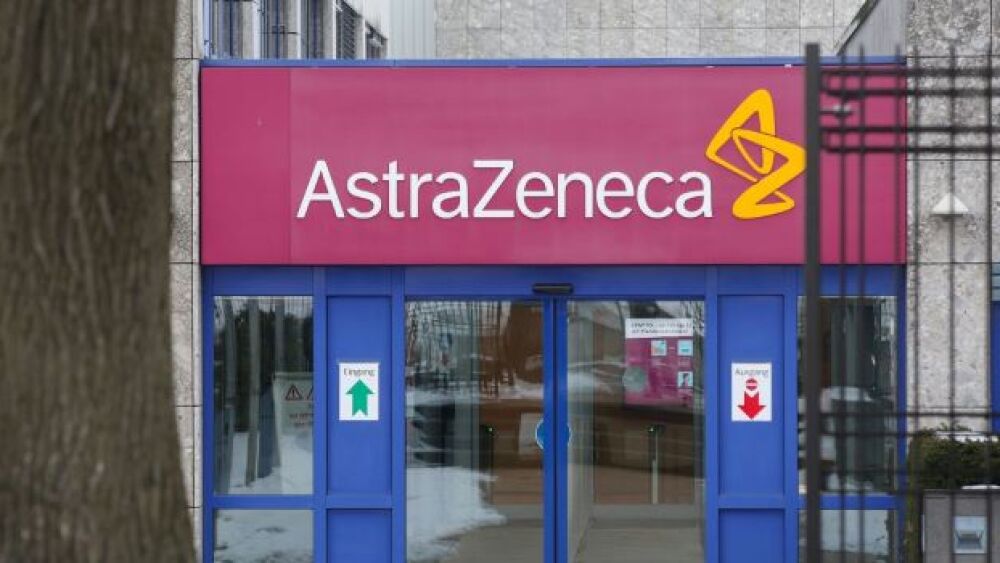The company’s second antibody-drug conjugate deal of 2023, with Shanghai-based LaNova Medicines, adds a potential first-in-class GPRC5D-directed ADC for multiple myeloma.
Pictured: AstraZeneca building/Bodo Marks/picture alliance/Getty Images
As antibody-drug conjugates make a steady comeback, AstraZeneca strikes its second deal this year with a Chinese company. The Cambridge-based biopharma announced Friday it’s putting potentially $600 million on the line for LaNova Medicines’ preclinical stage ADC.
The Shanghai-based biotech will score upfront payments of up to $55 million for LM-305, with an additional $545 million in potential milestones and tiered royalties.
LM-305 has the potential to become a first-in-class GPRC5D-directed ADC for multiple myeloma, according to the press release. It comes to AstraZeneca with Investigational New Drug (IND) approvals already in place in the U.S. and China.
The asset is a good fit for AstraZeneca since the company halted development of MEDI2228, an anti-BCMA ADC for multiple myeloma in 2021. AstraZeneca’s global head of multiple myeloma Nina Shah said in a statement that the LaNova deal “enriches our growing haematology pipeline.”
AstraZeneca has experience in the space with its HER2-directed ADC, Enhertu, approved for unresectable or metastatic breast cancer in 2019, and later for gastric cancer and NSCLC. It’s the first HER2-directed treatment approved for NSCLC. Indications could continue racking up for the drug with 19 active studies currently listed on ClinicalTrials.gov.
Developed in conjunction with Daiichi Sankyo, Enhertu made blockbuster status last year with sales over $1 billion. The ADC market has grown steadily over five years, reaching close to $7 billion in sales in 2022.
AstraZeneca had already struck an ADC deal earlier this year for another Chinese-developed ADC. In February, the biopharma dropped $63 million upfront for global rights to KYM Biosciences’ potential first-in-class Claudin 18.2 ADC. CMG901 is currently in Phase I trials for Claudin 18.2–positive solid tumors. KYM has the chance to earn up to $1.1 billion in milestone payments in addition to royalties.
LaNova also had an ADC targeting Claudin 18.2 in development that was scooped up by Turning Point Therapeutics in a deal for $220 million. The asset is now in the hands of Bristol Myers Squibb, since its $4.1 billion acquisition of Turning Point last summer. The ADC was granted orphan drug designation by the FDA for both gastric and pancreatic cancers and is positioned in BMS’ Phase I pipeline for advanced solid tumors.
Eight ADCs were approved by the FDA between 2019 and 2022, making the technology an attractive option for lower-risk development for pharma companies expanding their pipelines via partnerships and acquisitions. Experts say the complexity of ADC development is another selling point as it reduces the chances of biosimilars hitting the market, allowing potential revenues to stay strong.
Kate Goodwin is a freelance life science writer based in Des Moines, Iowa. She can be reached at kate.goodwin@biospace.com and on LinkedIn.






